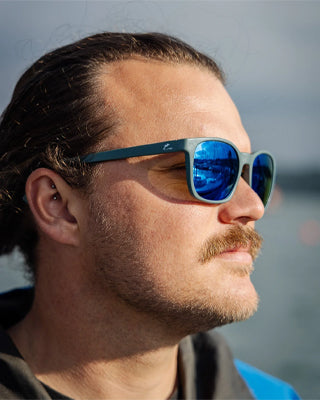Do beach cleans actually help tackle plastic pollution in our oceans?
Why beach cleanups hold promise for ocean pollution: new research sparks hope.
In a world of seemingly endless negative news surrounding the plastic pollution crisis in our oceans, our local beach cleans and litter picks can often feel insignificant when compared to the global issue. However, a recent study in Norway has sparked hope for litter pickers and beach cleaners globally.

Removing larger items of plastic from the coastline has proven to be vital in reducing microplastics.
In a groundbreaking study conducted by Norce, one of Norway's premier research organisations, hope for our polluted oceans has emerged through the revelation that beach cleans play a pivotal role in the reduction of plastic pollution. The removal of larger plastic items from coastlines has proven to be a catalyst for the breakdown of microplastics, potentially lingering in the water for years.
Scientific evidence, the first of its kind, indicates that beach cleans result in a rapid and significant decrease in plastic fragments released into the environment. On an island near Bergen, where volunteers removed bottles, bags, and other substantial pieces of plastic, Norce experts witnessed a staggering 99.5% reduction in microplastics on both land and in the water within just one year.

Regular beach cleans see a rapid decrease in microplastics.
What surprised the researchers was the efficiency of the cleanup process in reducing the leakage of microplastics into the sea. The study suggests that high levels of UV exposure and warm temperatures in shallow waters accelerate the degradation of plastic fragments more rapidly than previously believed. This discovery underscores the importance of a global effort to clean up coastlines worldwide.
Gunhild Bodtker, a senior researcher at Norce, emphasized the positive impact of shoreline cleanup, stating, "Clean up plastic on the shores, clean up all the plastic in the environment. It really makes a difference."

The Hardanger Fjord in Norway naturally accumulates ocean plastics.
Due to its geographical orientation, the Hardanger fjord in Western Norway, one of the world's largest fjords, acts as a massive collector of marine plastic transported by ocean currents from as far away as the UK, France, and the Netherlands. The accumulation of what Norce scientists term "plastic soil"—a dense layer of fragments mixed with organic matter, up to 1m deep—illustrates the severity of the issue.
Although microplastic pieces smaller than 5mm, likely accumulating in the fjord for the past 50 years, are challenging to remove, the research suggests that regular removal of larger plastic pieces can initiate the disappearance of these fragments. However, this process is effective only when microplastics are exposed to the elements, as plastic waste in deep, cold water could take centuries to degrade.

Norwegian authorities are also working to remove ghost fishing gear from marine ecosystems.
The cleanup efforts also address ghost fishing gear; lost or discarded fishing nets and lines that continue to trap and kill marine life. Norwegian authorities are actively working to remove this abandoned gear, employing remote-controlled submersibles to recover lost fishing equipment and prevent further harm to marine ecosystems.

Norway, along with Rwanda, is spearheading United Nations negotiations for a legally-binding Global Plastics Treaty to reduce production and pollution. While the next round of talks is scheduled for November in Kenya, the focus on cleaning up existing plastic pollution is equally paramount, backed by the newfound scientific evidence supporting the efficacy of beach cleans.
Norway's commitment to cleaning its coastline, exemplified by the removal of over 9,000 tonnes of plastic since the tragic death of a whale in Bergen, is a testament to the nation's dedication to a sustainable future. As Kenneth Bruvik, leader of the national cleanup, asserts, "The target is to clean the coastline completely. At the same time, plastic will come back, but we will keep [levels] down and clean year by year."

Committing to regular beach cleans not only addresses the visible plastic menace, but also combats the hidden threat of microplastics, contributing to the healing of our oceans and marine ecosystems. So the next time you are on a litter pick or beach clean, remember that each and every piece of plastic you remove makes an impact. Waterhaul has produced a range of recycled products, made from ghost fishing gear recovered from the ocean to help. Our bin bag hoop is the perfect solution when on a litter pick or beach clean to ensure the bin bag stays open, and dropping litter into the bag is easy. The Waterhaul reusable bin bag is made from recycled sails, now repurposed into these wonderful recycled bags perfect for helping to hold the litter collected. One of Waterhaul signature items is our litter picker, perfect for all environments , whether it be on the beach, along the river or simply in your back garden. Help combat plastic pollution today.
Up Next...

HOW LITTER PICKING BENEFITS YOUR MENTAL HEALTH: EXPLAINED
At Waterhaul, we know from experience that recovering plastic pollution from the Cornish coastline makes us feel good, so we thought it was worth delving into the science and exploring how and why!
READ THE FULL ARTICLE10% OFF YOUR FIRST ORDER
Join our NETwork for events, all things ocean conservation and exclusive private sale launches
